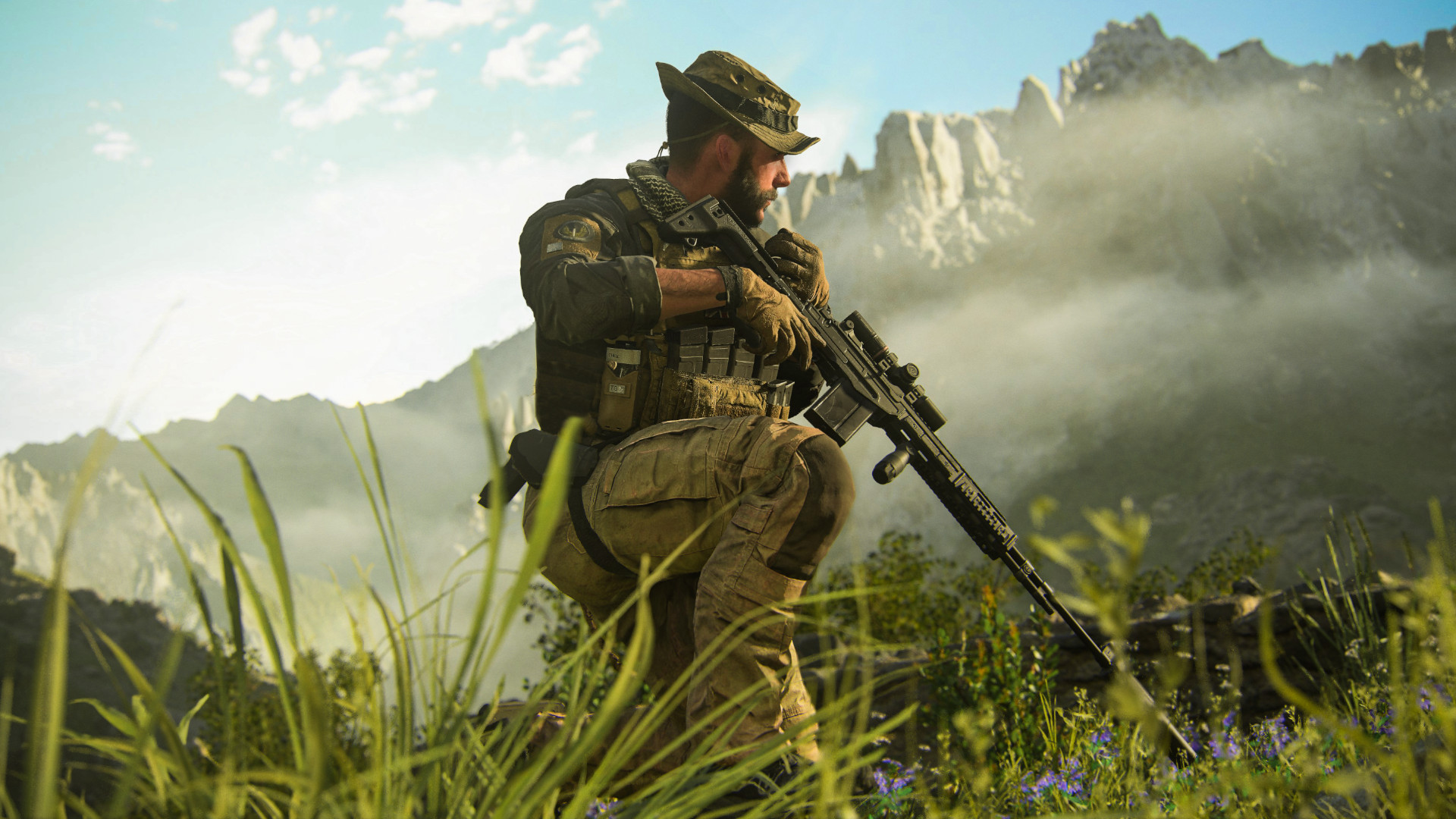Call of Duty devs wanted perks to be a bit like Fallout, and with Modern Warfare accepted they were never "making a better version of Counter-Strike"
Former Infinity Ward dev reflects on Call of Duty's origins

The multiplayer-defining perks and unlocks of the best Call of Duty games were originally seen as a parallel to Fallout, and they helped define the progression system that ultimately convinced the series' developers to stop trying to beat Counter-Strike at its own game.
That's according to Mackey McCandlish, a former Infinity War dev, who reflected on Call of Duty's origins in a new interview with IGN. There's a fascinating bit of history to sift through, but I'm especially intrigued by two points about the game's initial multiplayer package, which has since been emulated by countless games, and how it came together.
"It may seem obvious now that, 'oh yeah, you unlock guns,' but internally that was very divisive," McCandlish says of multiplayer loadouts and perks. "It's like, 'no, you can't do that. You’ve got to earn your guns in shooters.' Or 'you’ve got to have fairness of guns.' You can't have an unfair advantage at the beginning, but we went with it and it worked.
“And then on top of that, of course, unlocks and perks, which is a Fallout thing," he adds. "And in Fallout, the perk usually has a good side and a bad side of the coin. So we [said] 'Eh, we don't need the bad side as much,' but we will keep this idea of creating your own character from the collection of positive characteristics you want for your character. And that also helped define the game and set it apart from the games at the time."
When Call of Duty's original shepherds looked to set it apart from other games, many of them were specifically eyeing Counter-Strike, which was even then a dominant presence in the FPS scene. This RPG-lite perk system helped give Call of Duty a distinct voice – a "really personal journey of unlocking stuff" as McCandlish puts it. The kicker was the prestige system sitting atop this pyramid of unlocks, letting players start over from scratch in the pursuit of rank-up glory. Apparently, the very idea of prestige "was a last-minute, untested idea on [Call of Duty 4: Modern Warfare]," but it certainly worked out.
The original Modern Warfare is especially important in McCandlish's eyes because it was the point where, after Call of Duty 2 and 3, "we finally gave up on the idea that we were making a better version of Counter-Strike." This led to innovations like the killstreak system, which served as "a way to carrot players" into playing more and more. And of course, the rest is history. Killstreak-pumping, prestige-farming, montage-spawning history.
Xbox owns Call of Duty now, and Microsoft gaming boss Phil Spencer says the series will maintain "100% parity" across consoles going forward.
Weekly digests, tales from the communities you love, and more

Austin has been a game journalist for 12 years, having freelanced for the likes of PC Gamer, Eurogamer, IGN, Sports Illustrated, and more while finishing his journalism degree. He's been with GamesRadar+ since 2019. They've yet to realize his position is a cover for his career-spanning Destiny column, and he's kept the ruse going with a lot of news and the occasional feature, all while playing as many roguelikes as possible.


